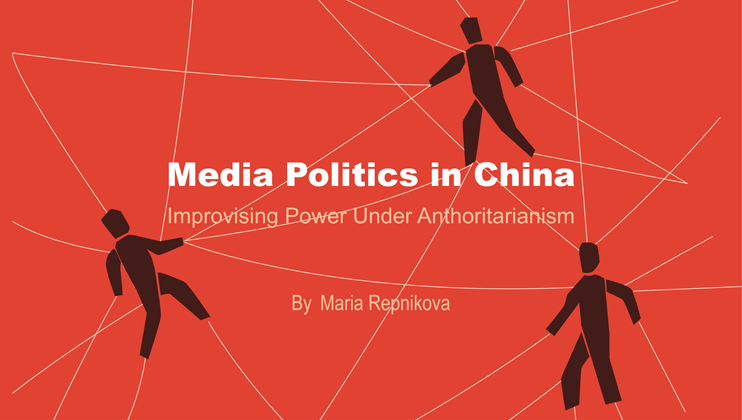Thursday, November 2, 2017 | 5:30 PM EDT - 7:00 PM EDT
National Committee on U.S.-China Relations |, New York, NY
Popular images of Chinese media from the past decade generally cast it as an agent of state propaganda. This is hardly surprising given the history of Chinese official media, and the swift suppression of those who openly criticize the regime. Yet the dichotomy between media and the party, with the former perpetually dominated by the latter, is complicated by the emergence of what Maria Repnikova, in her new book, terms “critical journalism.”
In Media Politics in China: Improvising Power under Authoritarianism (Cambridge University Press, 2017), Dr. Repnikova reveals a web of complex negotiations taking place between investigative journalists who have probed sensitive issues such as food safety and corruption, and party officials. Chinese critical journalists do not protest overtly, but their dynamic relationship with the party-state, characterized by what Dr. Repnikova calls “guarded improvisation,” leaves room for an important creative and political agency as they cautiously cover complicated, and sometimes controversial, topics. On November 2, 2017, Dr. Repnikova joined the National Committee for a discussion of her book, the role of the media in China, and what it means to be a Chinese journalist in the Xi era.

Maria Repnikova
Maria Repnikova is a scholar of global communication, with a comparative focus on China and Russia. She is an assistant professor of global communication and director of the Center for Global Information Studies at Georgia State University, and a fellow in the National Committee’s Public Intellectuals Program. Dr. Repnikova’s research examines the processes of political resistance and persuasion in illiberal political contexts, drawing on ethnographic research and extensive time in the field. She looks at critical journalism, political propaganda, cyber nationalism, and global media branding in China. Her work has appeared in China Quarterly, New Media & Society, Journal of Contemporary China, as well as Foreign Affairs and Foreign Policy.
Before moving to Atlanta, Dr. Repnikova was a post-doctoral fellow at the Annenberg School for Communication at the University of Pennsylvania. She holds a doctorate in politics from Oxford University, where she was a Rhodes Scholar; she received her bachelor’s degree from Georgetown University.
